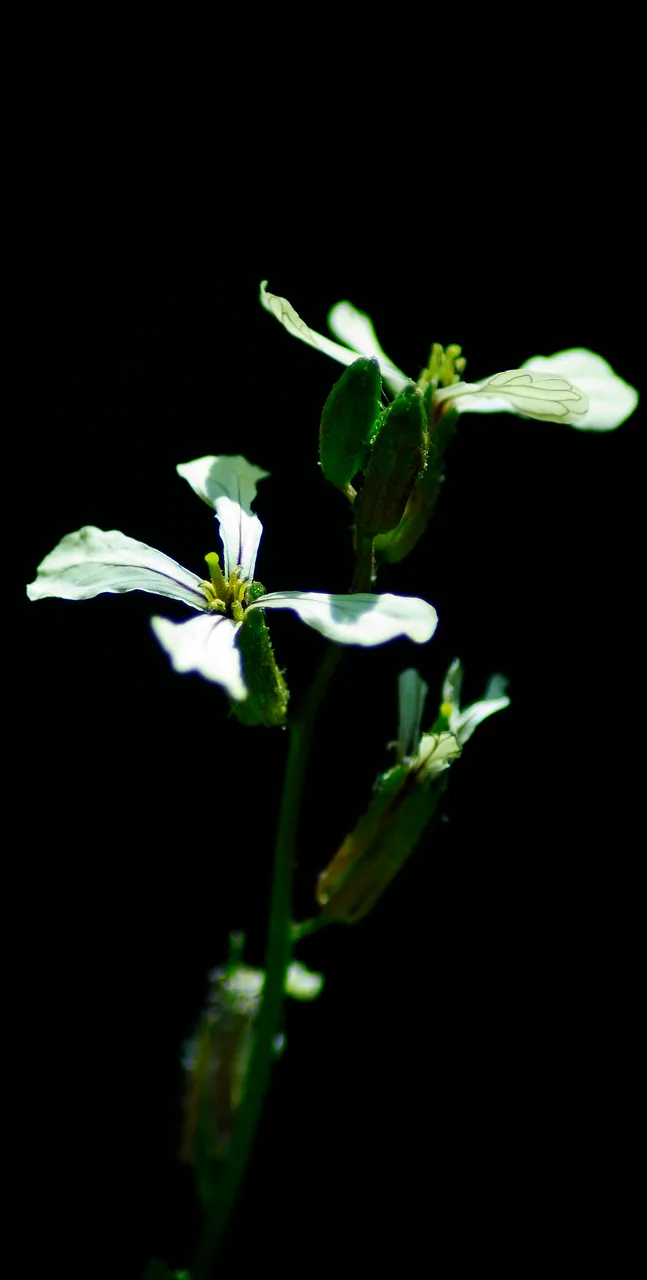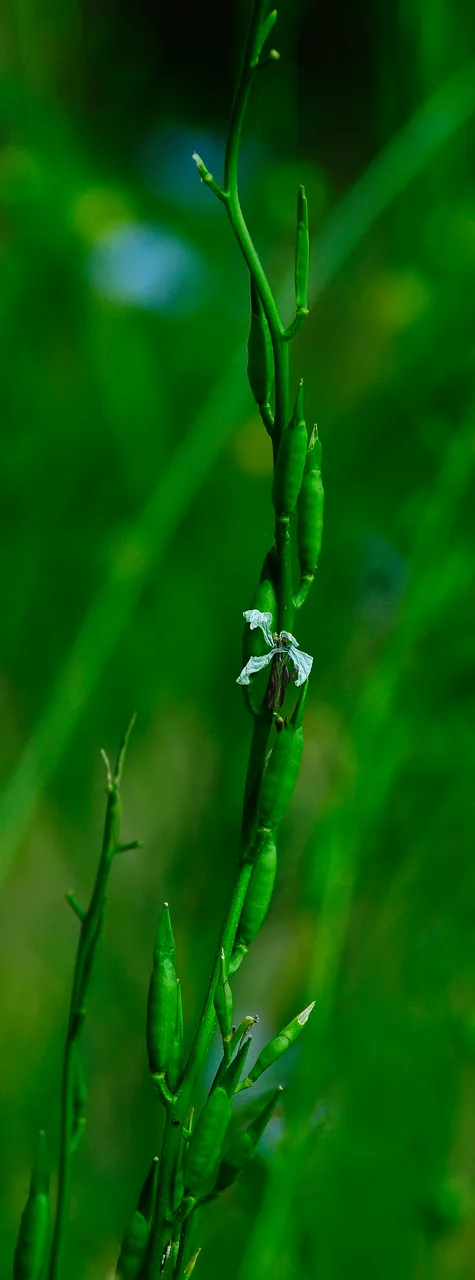This might be an odd post to make in this community, No-Herbs in an Herb-related community. But as I walked throughout my garden this morning, something struck me, a weird idea or thought: What happens between the harvesting and growing period? What is it called? I quickly Googled and found that I am luckily not the only one who has asked this question. However, the search was futile. Most likely, there is no English equivalent of a word for this time period. Some have speculated that one can call it “inter-harvest period”, and this is a nice description but it lacks the limbo effect that I am currently feeling. In this odd post, I want to briefly write about the state of my garden now, and how I am playing the waiting for the next crop of herbs to grow. I will also give my two cents worth of opinion on the current state of growing food as I perceive it. And I want to end with a rather philosophical idea of the “Spiritual Waiting Game” when you relinquish and give up on trying to have control in your garden, or rather when you let nature do her thing without you interfering.

(A dandelion seed head without seeds.)
Between Harvesting and Growing: Limbo, Seeds, and Waiting without Herbs

Change is the only constant, and the seasons attest to this fact. From spring to summer and summer to autumn, and autumn to winter, we are shackled to natures whim. In my country, South Africa, and especially in the Western Cape coastal area, we are fortunate to have warm summers and relatively mild to warm winters. We never really get frost, and the winters are wet (winter raining season). Our growing season can theoretically stretch throughout the year. Blueberries always fail on me because I know that some of them need a dormant period in which the bushes need to freeze (I think I might have gotten the wrong blueberries for my area). But herbs like salad arugula (Eruca sativa), chickweed (Stellaria media) and common purslane (Portulaca oleracea) do have a specific period in which they grow. They are all annuals, or plants that grow in one “growing season” and then produces seeds and dies off. And this is where I find an interesting “period” or “moment”: What happens from this point where the plant dies and produces seeds, to when there is either (i) another crop that grows or (ii) the same crop that grows from that seed?
I will try and explain this with salad rocket and chickweed on the one side and common purslane on the other side. Salad rocket and chickweed in my area likes cold weather and lots of water with well-draining soil. In fact, when chickweed starts to grow in my flowerpots, I know the winter is here and autumn is gone. The same with the salad rocket, springing from the ground when the first winter rains fall. So, in summary, salad rocket and chickweed grow in the winter and produces enough leafy greens to last the whole winter up till the end of spring. In spring when the summer heat starts to shine through and the rain start to fall less, these plants start to bloom and produces their flowers, growing few if any new leaves, and then they produce their seeds. You can still try and harvest from them, but, for example, the chickweed becomes woody, and the salad rocket’s leaves are small and not nice to eat.

Whilst this is going on, the summer plants, like the common purslane and amaranth (I grow that I think is Amaranthus hybridus), only starts to germinate late spring early summer. In other words, there is a period in which the winter annuals start to die off, and in which the summer annuals start to germinate, when the garden technically doesn’t have any herbs or things growing in them. (I have some Swiss chard (Beta vulgaris subsp. vulgaris) that is a biannual, garlic chives (Allium tuberosum) that are perennials and wild rocket (Diplotaxis tenuifolia) that is also a perennial. But I mainly depend on wild herbs that grow naturally in my garden. Read the last section of this post for more on that.) And this period – for which I do not have a name that satisfies my anxious limbo feeling – is one that I do not like but truly admire. It is a moment in which from my human perspective it seems like nothing is going on. I walk through my garden, and I see everything going to seed or things that have already died off, and only here and there new plants emerging from the ground. (Interestingly, this period, in especially sugar cane farming and the production of ethanol, one can see, for example, a spike in ethanol prices because there is a scarcity in sugar canes.)
Modern Farming in the Instant Gratification Era
I am by no means an expert on farming or their techniques. But I know that a lot of older generation farmers have noted that young and new farmers are “book smart” but they lack practical knowledge or wisdom. (The philosopher Aristotle called practical wisdom phronesis and he said that true wisdom (sophia) can only be achieved with a combination of phronesis/practical wisdom and episteme/theoretical knowledge.) In this period of waiting, I am irked by my own need to have herbs and plants ready. I am a product of the times, and I feel the need to hurry the herbs along. Modern farming has led us to believe that there will always be enough and in stock, supermarkets with products always stocked gives the impression that things grow year-round and that they are always there ready to be harvested. My pet peeve is salad rocket (Eruca sativa) that you can buy year round in my local supermarket. Sometimes in the summer you can see how yellow the leaves are and how sickly looking the leaves look. I think they grow them in green houses, because my attempts at growing salad rocket in the summer has always resulted in plants bolting and flowering without producing any leaves.

(The flower of common yellow mustard.)
The market demands salad rocket, so the supermarkets will somehow find salad rocket. Luckily, wild rocket has become a trendy salad green but I have actually seen shops selling “wild rocket” that I could guarantee was normal rocket. Let us give them the benefit of doubt by stating it was an honest mistake of mislabelling or wrongly packed leaves.
But again, this to my opinion speaks of the instant gratification phenomenon and the willingness of the market (read: farmers) to respond to this instant desired that needs satisfaction. (I might also see this wrong, but luckily, I warned you that this is only my opinion and how I see things. I might be wrong.)

The Philosophical Idea of the “Spiritual Waiting Game”
I am pulling the dead chickweeds from the flowerbeds, and I save the seeds. I look to see if there are any new seedlings or seeds that germinated. I wonder by myself: will they grow? Will the purslane come back? Why did I not save some seeds? I look to the other beds, and I see that the amaranth is growing, and I give a thanks to the creatures in the soil the waters from the heavens. But I stand for a moment in limbo, a feeling of dread ensues, and I wonder: will they come back next year? I hold in my palm the seeds of the dead plants and I look at them. I throw them away and in that throwing action, I “pray” to mother nature to keep them safe. But being a philosopher, I know that this prayer will not always be heard.

And this is where the spiritual waiting game ensues. Faith is the belief in something without proof. In the perfect conditions, the seeds will germinate, grow quickly, and produce wonderfully and bountifully. But life is harsh, there isn’t always enough water, and the seeds are food for others, which in turn is food for others and so on with the circle of life. I link this process to faith and the spiritual because it is not in my control. I contrast this process with the one I described above, namely, the instant gratification phenomenon. With the instant gratification phenomenon few things can be left to chance. Farming, for example, needs to have everything planned, and so-called weeds need to be exterminated, and the soil needs this and that exact formulated fertilizer, and so on. Leaving this for “chance” or for nature is not something that we modern westernized peoples like. But this is the exact route I am taking in my garden growing herbs that I eat.
I stand in front of the flowerbed where for the whole winter season I picked countless bowls of leafy greens, from chickweed to salad rocket to common dandelion leaves. Now there is only the soil. I do not know if the soil is healthy or not, I do not know what seeds are in there. I add some compost as a mulch layer and I water is sparingly. I am trying to mimic what mother nature does. I leave it in her hands, and I am displeased at my own faithlessness. Every time in this weird period in between crops, I find myself in this state, but I know that everything will be growing in no time.

I hope that you enjoyed this piece and that you learned something from it. Have you ever felt this feeling? Have you planted wild herbs grasping to the spiritual game of waiting? Please let me know in the comments! All the images are from my garden, taken with my Nikon D300. The musings are also my own. As a philosopher, I am in a position to claim humility, so if you disagree with something, let us have an interesting conversation.

(Common Linseed flower.)